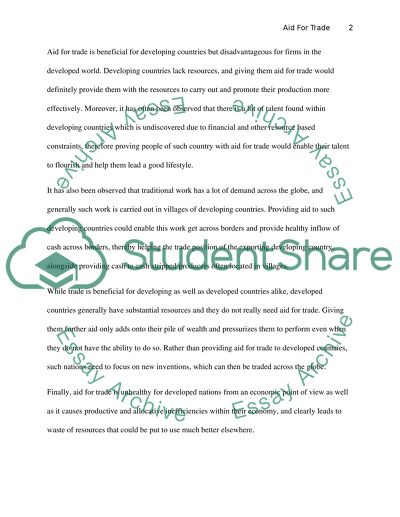Aid for trade is beneficial for developing countries but Coursework. Retrieved from https://studentshare.org/marketing/1678326-aid-for-trade-is-beneficial-for-developing-countries-but-disadvantageous-for-firms-in-the-developed-world
Aid for Trade Is Beneficial for Developing Countries But Coursework. https://studentshare.org/marketing/1678326-aid-for-trade-is-beneficial-for-developing-countries-but-disadvantageous-for-firms-in-the-developed-world.


